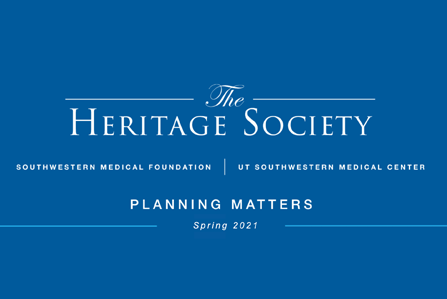
As December 31 approaches, there are several considerations affecting charitable giving that should be kept in mind. These include provisions of the CARES ACT that were extended for 2021, the continued attractiveness of the Charitable IRA Rollover, and what the Build Back Better bill may mean for future charitable plans. Here are some great year-end giving ideas for you to consider in your planned giving efforts.
CARES ACT Extensions
The key charitable giving incentive that remains from the original CARES ACT is the ability of individuals to deduct up to 100% of adjusted gross income (AGI) for gifts of cash to qualified charities. This does not include gifts to donor-advised funds, private foundations, or supporting organizations.
For non-itemizers, a provision described as the “universal charitable deduction” allows an individual to deduct up to $300 for charitable gifts and a married couple up to $600, while still taking the standard deduction.
Both the 100% of AGI deduction for cash gifts and the universal charitable deduction are set to expire at the end of 2021.
Year-End Giving Ideas
Planning Idea #1: The ability to deduct cash gifts up to 100% of AGI offers the strategy of accelerating, or bunching, charitable gifts planned for future years into 2021.
Planning Idea #2: When setting up a charitable gift annuity with a gift of cash, the charitable deduction generated by such a gift qualifies for the 100% of AGI deduction. Not only may you eliminate income tax for 2021, but you can also lock in an attractive annual income, much of which may be tax-free.
Charitable IRA Rollover
A Charitable IRA Rollover remains an option for those who have reached the age of 70 ½ and want to use funds in their IRA to make charitable gifts. Also known as a qualified charitable distribution (QCD), gifts to qualified charities from an IRA can be made up to $100,000 per individual. The charitable distribution avoids income tax and may qualify for all or a part of one’s Required Minimum Distribution. For many who do not itemize, the QCD offers a wonderful option to receive tax benefits from charitable giving.
Build Back Better Bill
In September, the House Ways and Means Committee passed the Build Back Better tax bill which, if passed by the House and Senate, would impact income, capital gains, and estate taxes for wealthy individuals. Here are the key components:
- The top marginal income tax rate increases from 37% to 39.6%.
- The top capital gains tax rate increases from 20% to 25%.
- A 3% surcharge will be assessed on income above $5 million.
- Requiring withdrawal of significant amounts of IRA or Roth IRA balances to the extent balances exceed $10 million.
- The Gift and Estate Tax Exemption is reduced from $11,700,000 per person (or $23,400,000 for a married couple) to approximately $6,000,000 person or $12,000,000 per married couple.
About the Author

Since 2000, Randy has served as Director of Planned Giving for Southwestern Medical Foundation and UT Southwestern Medical Center. He works with donors to suggest bequest language to share with attorneys, establish charitable gift annuities and charitable remainder trusts, utilize beneficiary designations for retirement plan accounts, and explore gifts of other non-cash assets like real estate and life insurance. After receiving a Masters of Divinity degree from Vanderbilt University, Randy began a career in development, working in higher education, the arts, and academic medicine. He received the Chartered Advisor in Philanthropy designation (CAP) through the American College of Financial Services.
To contact Randy Daugherty, please call (214) 648-3069 or email him at randal.daugherty@utsouthwestern.edu.




